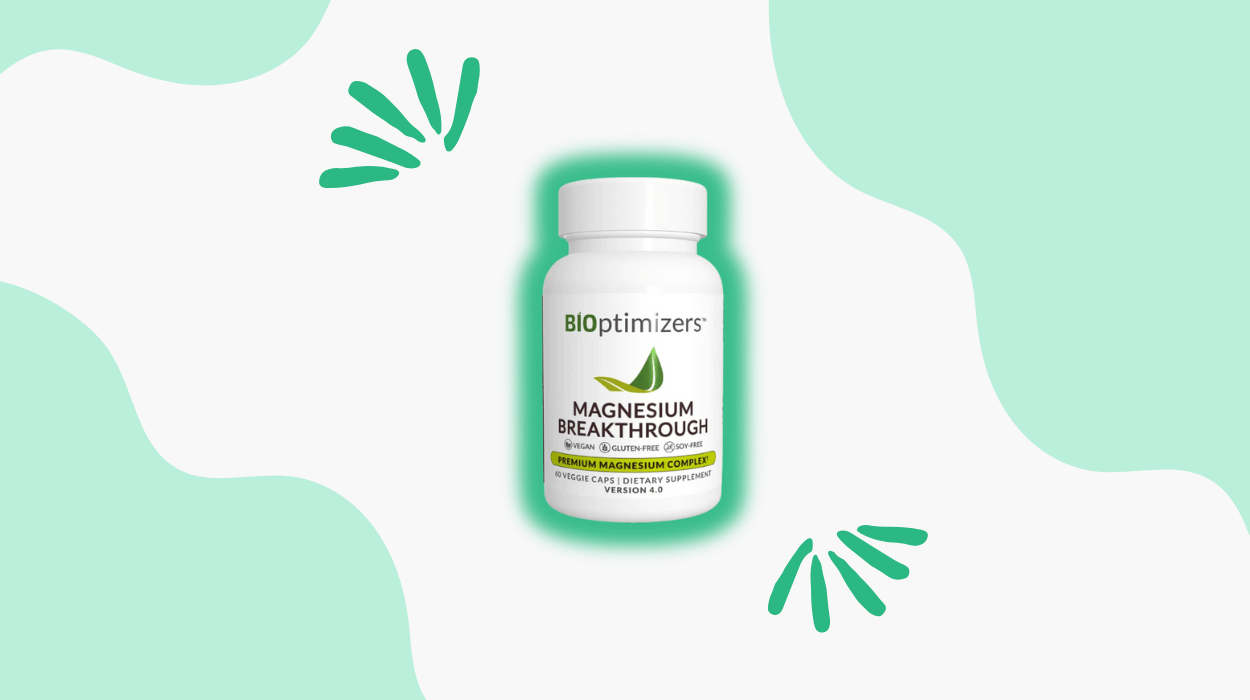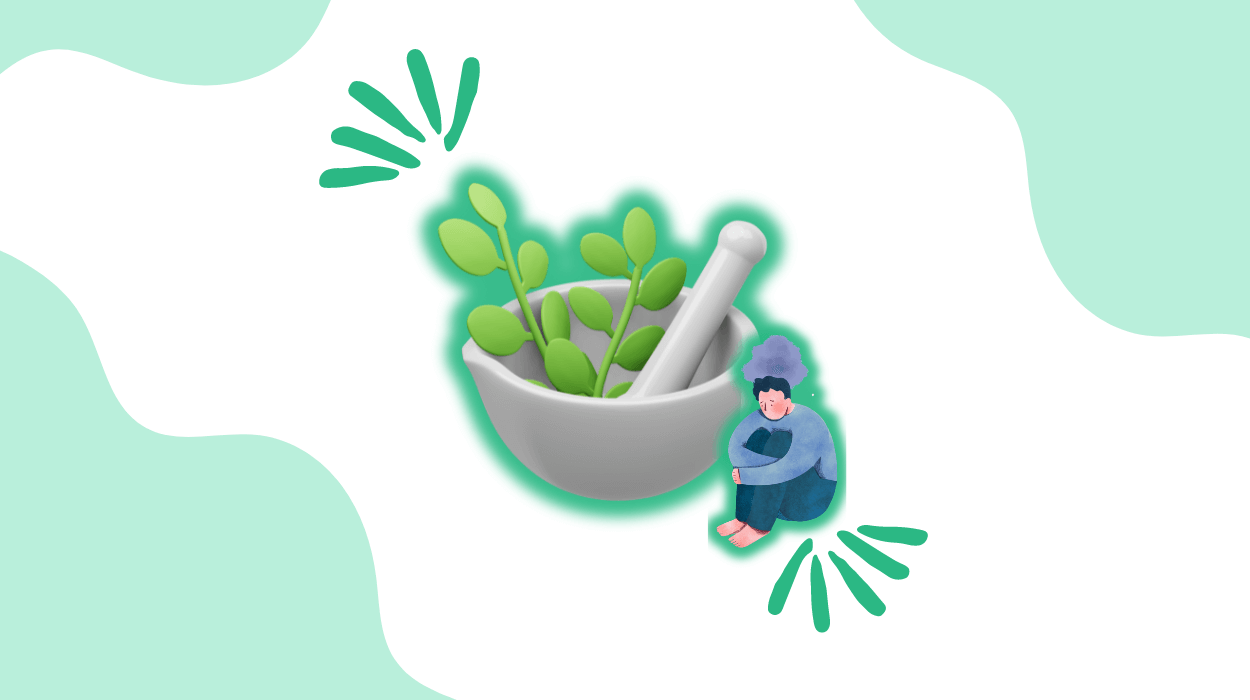

Anxiety episodes may occur occasionally or could manifest as full-blown anxiety disorders like GAD or separation anxiety. It may significantly disturb your physical and cognitive well-being. Coping with anxiety could include doctor-prescribed medications like antidepressants or benzodiazepines, with increased chances of side effects and dependency. Herbal remedies could be a potentially safer and more natural approach to anxiety management. There are some adaptogenic herbs that could mitigate anxiety, promote calmness, and help soothe the nervous system. Here, we shall examine some of the best herbal remedies that could help alleviate anxiety and induce calmness.
 Best Herbal Remedies For Anxiety
Best Herbal Remedies For AnxietyReishi mushrooms are adaptogens, which may help the body adapt to stressors and manage the stress response. It might reduce anxiety by gently modulating the adrenal glands.
Reishi contains polypeptides that could act as endorphin and neurotransmitter precursors. Their soothing effects on the central nervous system may help reduce stress and anxiety.
These medicinal mushrooms can help you relax and unwind, making them helpful in reducing anxiety-induced sleep difficulties. Taking Reishi before bedtime may promote a sense of tranquility conducive to restful sleep.
Ashwagandha, also known as Withania somnifera, could be effective in reducing anxiety symptoms. It may help regulate cortisol levels by acting on the body’s stress response system.
A research study found that taking a daily dose of 240 mg of ashwagandha for two months led to a noticeable reduction in some measures of anxiety but not in others.
In a small study, participants who took 250 or 600 mg of ashwagandha extract for 56 days observed significantly reduced stress and cortisol levels than those who took a placebo. Using ashwagandha could reset adrenal-associated stress, helping you cope better with daily stressors and anxiety triggers.
Lavender may help provide some relief during anxiety breakout, which could uplift your mood and also combat depression.
It contains terpene compounds. A study suggested that two of the terpenes in lavender (linalyl acetate and linalool) impart a calming effect on the chemical receptors in the brain, helping soothe anxiety.
As per a study by Zahraa Jalal and Wuan Shuen Yap, people with anxiety disorders who took 160 mg of lavender oil capsules encountered a noticeable reduction in anxiety levels.
European lavender extract product “Lavela” has demonstrated effectiveness comparable to benzodiazepines in reducing anxiety symptoms. It was particularly useful against anxiety when taken regularly before sleep.
Lavender could be consumed as a tea, taken as a tincture, or used aromatically through diffusion, topical application, or added to baths.
Turmeric is rich in curcumin and offers potent anti-inflammatory properties that could reduce anxiety linked to chronic stress responses.
Curcumin could potentially raise serotonin and dopamine levels in the brain. These properties of curcumin make turmeric effective in managing mental health concerns, such as depression and anxiety.
Research has indicated turmeric’s effectiveness to be similar to Prozac (an antidepressant medication) in anxiety management, with far fewer side effects.
| Benefits of Turmeric for Anxiety |
|---|
| Anti-inflammatory properties |
| Reduces anxiety from stress |
| Promotes digestive health |
Kava or Piper methysticum is a herb native to the islands of the Pacific Ocean. Kava usage could help mitigate stress and anxious feelings by inducing calmness and relaxation.
A long-term study investigated the effects of kava extract in people with anxiety. The findings suggest that compared to the placebo, kava extract might lower the severity of participants’ perceived anxiety.
However, the CDC has issued warnings about the use of dietary supplements containing Kava due to the reported instances of severe liver damage.
Given the concerns surrounding Kava and its potential impact on liver health, consulting with healthcare providers before including Kava in your wellness regimen is essential.
Galphimia glauca, a plant species indigenous to Mexico, has traditionally been utilized as a calming agent to minimize anxiety symptoms.
A 2018 review highlighted the promising evidence supporting the use of Galphimia glauca to manage anxiety disorders.
Early studies indicate that taking dried Galphimia glauca extract for up to 15 weeks demonstrated a noticeable decrease in signs of GAD.
Cannabidiol, commonly known as CBD, is an herbal extract with demonstrated efficacy in minimizing anxiety, stress, and depression.
Research suggests CBD interacts with your endocannabinoid system, regulating various physiological processes, including mood and stress responses. Such a mechanism might reduce anxiety symptoms and promote calmness.
As per a study by Nicole Lewis and Heather Lee, CBD has a calming effect on the central nervous system, which may benefit people with anxiety-related disorders. However, more clinical trials are required to establish these findings.
CBD is available in various forms, such as oils, tinctures, edibles, and topical products. Consult a doctor before considering CBD usage for anxiety management.
Vitex (also known as Chasteberry or Chaste tree) has been studied for its ability to alleviate symptoms of depression and anxiety during premenstrual syndrome (PMS). It may serve as a natural remedy for women experiencing anxiety tied explicitly to their menstrual cycle.
Chasteberry works by influencing the pituitary gland. It regulates the production of luteinizing hormone (LH) and follicle-stimulating hormone (FSH), which helps stabilize mood and reduce anxiety symptoms linked to hormonal fluctuations.
Its calming effects on the nervous system could also contribute to a sense of relaxation and well-being.
Chamomile is a flowering herb known for its calming properties that could aid in anxiety relief and relaxation. Its gentle nature makes it generally safe for short-term use, showing promise in reducing anxiety symptoms.
A 2016 study indicated that long-term usage of chamomile extract significantly reduced moderate to severe signs of generalized anxiety disorder (GAD) in 58% of the participants. However, it was not able to prevent future symptoms from occurring.
Chamomile is often utilized in various forms to help alleviate stress and anxiety:
Lemon balm could aid relaxation and reduce stress. Studies indicate that lemon balm may have a calming effect on the nervous system, making it a promising herbal remedy for managing anxiety. The herb contains compounds that interact with specific brain receptors, potentially leading to its anxiolytic effects. It might reduce some signs of anxiety, such as excitability and nervousness.
Research has indicated that lemon balm might counteract the adverse effects of laboratory-induced psychological stress on mood and cognitive well-being. Participants who took lemon balm reported increased calmness and reduced alertness.
Lemon balm may be consumed as a tea or as a supplement. The dosages could vary between 300-600 mg, thrice a day. You may change the dosage according to individual needs or anxiety severity.
While lemon balm is generally safe for short-term use, you might experience side effects such as nausea and abdominal discomfort. Therefore, consult a doctor before using lemon balm, especially if you are pregnant, nursing, or taking medications.
Omega-3 fatty acids may promote a healthy nervous system and physical condition. EPA and DHA variants of omega-3 fatty acids are essential for brain function and development. They have been linked to reducing inflammation in the brain, which may help in managing symptoms of anxiety.
Studies suggest that omega-3 fatty acids may aid mood regulation and improve symptoms of anxiety and depression. They are believed to impact neurotransmitter function, positively influencing your emotional well-being.
Omega-3 fatty acids have indicated potential in reducing cortisol levels, the hormone associated with stress. They may contribute to a calmer state of mind by helping to modulate the body’s stress response.
You can obtain omega-3 fatty acids naturally through foods like fatty fish (salmon, tuna, and mackerel), nuts and seeds (chia seeds and walnuts), and plant oils (soybean, canola, or flaxseed). Omega-3 fatty acids supplements are also available.
Passionflower (P. incarnata) could boost the brain’s gamma-aminobutyric acid (GABA) neurotransmitters. Such effects may lower brain activity, induce relaxation, and minimize anxiety.
Passionflower administration could reduce anxiety in patients who were scheduled for surgery, highlighting its potential to reduce anxiety.
Drinking herbal tea infused with passionflower daily might help manage mild sleep irregularities, potentially reducing anxiety and inducing relaxation.
Initial trials indicate positive outcomes with passionflower usage. However, the overall evidence supporting the effectiveness of passionflower for anxiety is still limited.
Valerian, scientifically known as Valeriana officinalis, is utilized to manage sleep disorders, anxiety, and depression. Despite its long history of use, there have only been a few high-quality studies on the effects of valerian.
One study examining the effects of valerian root on hemodialysis patients found they had reduced anxiety symptoms after consuming 530 mg of valerian root an hour before bedtime for one month. They also experienced improved sleep quality and reduced depressive episodes as well.
However, according to the NCCIH, there is currently insufficient evidence to determine whether valerian could effectively alleviate symptoms of anxiety or depression.
| Benefits | Safety | Dosage |
|---|---|---|
| Promotes relaxation | Generally safe | 300-600 mg before bedtime |
| Helps with sleep disorders | Limited data on long-term use | Up to 3 times daily |
| Potential for anxiety relief | Lack of information for specific groups | Consult healthcare provider |
When considering how herbs for anxiety work, it’s essential to understand the mechanisms behind their calming effects.
Herbs like ashwagandha could reduce levels of the stress hormone cortisol in the blood. High cortisol levels may trigger anxiety development, making herbs that lower cortisol beneficial for anxiety management.
Valerian root and passionflower might modulate gamma-aminobutyric acid (GABA) brain receptors. They may help in enhancing GABA activity, which could promote relaxation and reduce feelings of anxiety. Valerian root and passionflower might also aid in improving sleep quality and reducing insomnia severity.
Besides targeting specific anxiety symptoms, herbal remedies may address hormonal imbalances in the body and induce relaxation. These herbs may provide a holistic approach to managing anxiety without the side effects of pharmaceuticals.
Herbs like Kava and valerian root may negatively interact with over-the-counter and prescription medications, such as antidepressants and sedatives. Such interactions may alter the effects of these drugs and possibly cause serious health consequences.
The FDA does not regulate herbal remedies like CBD for managing anxiety. There might be a potential risk of safety concerns, such as mislabeling or contamination with substances like heavy metals.
It is vital to recognize that herbal remedies may take longer to demonstrate their effects than prescription medications. You may employ herbal remedies alongside standard treatment interventions to aid anxiety relief.
Herbal remedies may provide anxiety relief without negatively impacting cognitive function in the short or long term. Pair the herbal remedies with lifestyle changes, such as regular exercise, an antioxidant-rich diet, stress management techniques, and sufficient sleep.
These practices could complement the herbs in promoting mental well-being and reducing anxiety. Journaling your anxious thoughts, doing meditation or relaxation exercises, trying aromatherapy, and engaging in social conversations may help minimize anxiety-related issues.
Tyler Read earned an undergraduate academic degree from Sonoma State University, California and is a certified personal trainer (CPT) with NASM (National Academy of Sports Medicine). With over 16 years of experience, Tyler has trained clients both online and in-person.
He is passionate about helping others turn their love for fitness into a career. Tyler has worked with many local and commercial gyms before establishing his successful private personal training business, which he continues to operate.
